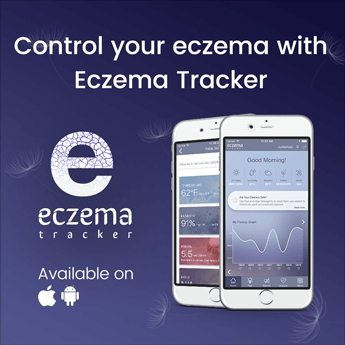What is Medicare?
Before determining if Medicare will cover your allergy treatment, it is important to know what Medicare is. Medicare is a nationalized health insurance program in the United States for people 65 and older. Additionally, those who have certain disabilities or end-stage renal disease may qualify for Medicare.
Medicare covered services that are considered medically necessary. Medicare defines medically necessary as, “Health care services or supplies needed to diagnose or treat an illness, injury, condition, disease, or its symptoms and that meet accepted standards of medicine.”
It is not uncommon for Medicare to deny claims if they are coded incorrectly or if the services performed were not considered necessary. If you are a Medicare beneficiary, it is always best to check with your doctor prior to receiving treatment to know if your services will be covered.

Allergy Facts
With over 50 million Americans suffering from allergies every year, allergies have been ranked as the sixth most chronic illness in the country. Allergies aren’t just the everyday cough and sneeze we experience.
Allergies also include chronic conditions such as eczema, food allergies, and asthma, just to name a few. According to the Centers for Disease Control and Prevention (CDC) 35 million Americans suffer from eczema, 32 million Americans have at least one food allergy, and 26 million Americans suffer from asthma.
Each of these chronic conditions has diagnostic exams that patients undergo to get an official diagnosis. There are also many treatments to help patients manage these conditions.
Older individuals who suffer from allergies will want to know how they will be covered by Medicare, which is our national health insurance program for people aged 65 and older here in America and for certain younger people with disabilities. It provides both inpatient and outpatient coverage as well as optional drug coverage.
How Does Medicare Cover Allergies?

Here is how Medicare covered diagnostic exams and treatments for eczema, food allergies, and asthma.
Does Medicare Cover Eczema?
Eczema is a blanket term for a variety of types of skin swelling. While there are many types of eczema, atopic dermatitis is the most common type. Atopic dermatitis causes the skin to be inflamed, itchy, and dry. It can also cause rashes to occur on your face, on your hands and feet and on the inside of your elbows and knees.
We don’t really know exactly what causes eczema, but some scientists believe that it occurs due to a combination of both environment factors and genetic factors.
There are many potential triggers for eczema such as pollens, nuts, dairy, and smoke. While not a curable condition, you can get a treatment that will help to alleviate your symptoms and heal your skin.
Eczema can be diagnosed by a primary physician or dermatologists without any tests. When it comes to treatment, there are many home remedies and lifestyle changes that you can implement to reduce the likelihood of flare-ups.
However, if the eczema is too severe and requires a more invasive treatment, Medicare may cover the treatment. One treatment performed by physicians to treat eczema in adults is phototherapy. Phototherapy is the use of UV light panels that can help reduce eczema symptoms.
Medicare may cover your phototherapy treatments if other eczema treatments have shown little to no results. Medicare Part B will cover 80% of your treatment costs after you meet a small annual deductible of $185. You will be responsible for the other 20% unless you have a Medicare supplemental insurance plan to cover it for you.
Although proven effective, phototherapy isn’t the most common form of treatment for eczema. Most eczema patients rely on medication to manage their condition. Medicare Part D offers prescription drug coverage.
Medicare Part D Plan
When enrolling in a Part D drug plan, you should review the plan’s formulary to make s

ure that the plan covers your most important prescriptions. Depending on the plan, your Part D plan may cover creams, oral pills, and even new injections that treat eczema.
Medicare Coverage for Food Allergies
A food allergy is a health condition in which exposure to certain foods will cause a dangerous immune response. This allergic reaction happens because your immune system sees proteins within that food as a threat.
There are an estimated 32 million Americans who have some form of food allergy. Food allergies can also affect children and about 40 percent of kids with food allergies will find that they are allergic to more than just one food.
Symptoms of an allergic reaction can range from minor itching or hives to more serious throat swelling or difficulty in breathing.
While hundreds of foods can cause an allergic reaction, there are 8 common food allergens that can cause some of the most serious reactions. These are eggs, fish, milk, peanuts, shellfish, soy, tree nuts, and wheat. You can accumulate a food allergy over time; not everyone who has a food allergy is born with it. Also, food allergies could resolve with time.
Currently, therapies to treat food allergies are in clinical trials. However, since none have been FDA approved, Medicare will not cover food allergy trials. Medicare does, however, cover the diagnosis of food allergies.
Most skin tests that test for allergies include a food allergy section. Medicare will cover some of these tests if they are proven to be medically necessary by your doctor.
Medicare may even cover challenge food testing. This is where a growing percentage of a certain type of food is added to the patient’s diet over time to see if a reaction occurs. Medicare Part B will be in charge coverage for this diagnostic test.
More times than not, if you have a food allergy, you likely carry around an EpiPen in case of emergency. These epinephrine autoinjectors are necessary for people who have the likelihood of anaphylactic shock. A popular epinephrine autoinjector that may be covered by Medicare Part D is EpiPen.
Adrenaclick, a generic epinephrine injection is covered by 52% of Part D and Part C plans according to Good RX. However, using a coupon rather than your insurance can occasionally be the more cost-effective route. Always check both your Part D cost and the Good RX site to be sure you get the lowest price.
Medicare Part D Formulary

Don’t forget to check the Part D plan’s formulary to see if it covers your necessary medications prior to enrolling as well. If you are prescribed a medication after you have already enrolled in Part D and you find that it is not on the formulary, you can file a drug exception with your Part D carrier to see if they will add it to the list for you.
Medicare Cover Asthma Inhalers
Asthma is a condition that can be chronic. It causes airways to swell and narrow which as a result makes it difficult to breathe. People with asthma have airways that are continually inflamed, and thus they suffer from symptoms like wheezing, coughing, and tightness in their chest.
There are many things that can trigger asthma, including mold, pollen, dust mites, and pet danger. Cold air and respiratory infections can also cause attacks. Physical activity can sometimes make symptoms worse as well.
While asthma affects people of all ages, it often starts in childhood. Asthma tends to run in families and is usually a long-term condition although some children grow out of it.
Medicare may cover certain diagnostic tests such as a spirometry, pulmonary function test, and bronchial challenge test if they are deemed medically necessary. Like we mentioned earlier, Part B is in charge of diagnostic testing.
As asthma patients age, their condition can become more severe and they may require the use of a nebulizer or oxygen pump. When medical equipment such as these are necessary, Medicare Part B covers them under the durable medical equipment (DME) benefit.
If you are prescribed DME by your physician, you will need to obtain your equipment from a Medicare-approved DME supplier. You will pay for your DME similar to how you pay for other Part B services. Part B will pay 80% after you meet your deductible and you will pay 20%. Medicare Part B also covers some medications that are used with durable medical equipment. For instance, if you use Albuterol Sulfate with your nebulizer, then Part B will cover it rather than your Part D plan.
Medicare Advantage Plans 2019

Medicare Advantage plans (Part C) are a type of plan that pays instead of Medicare, unlike Medigap that pays after Medicare. When you’re enrolled in a Part C plan, the private carrier you receive coverage from is in charge of setting your deductibles, copays, coinsurance, and more.
This means that your payment for the items mentioned above will be different than someone who has Original Medicare. If you have a Medicare Advantage plan, review your plan’s benefit guidelines to see what you will pay for various services.
Author Bio:
Danielle Kunkle Roberts is a Forbes.com Contributor. She writes for several major publications and has conducted seminars and webinars about Medicare that have educated thousands. Outside of work, she is an avid outdoor enthusiast, pursuing activities such as hiking, boating, snow skiing, whitewater rafting and recreational water sports.





